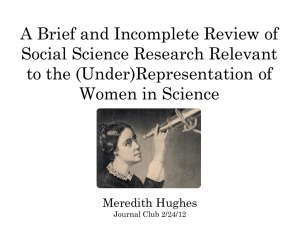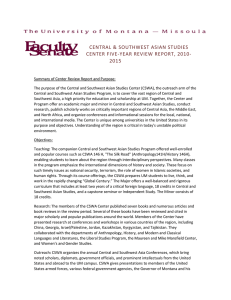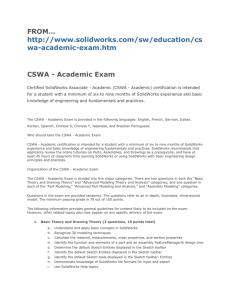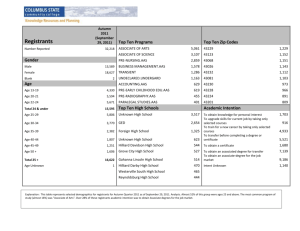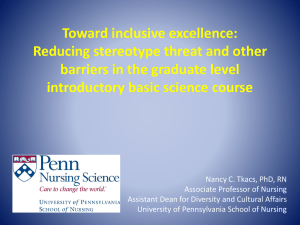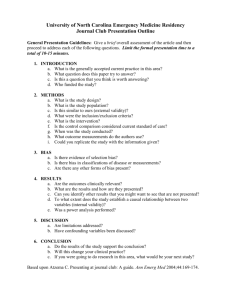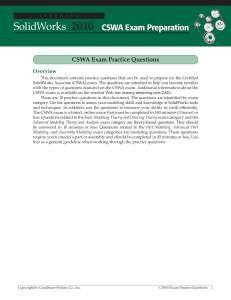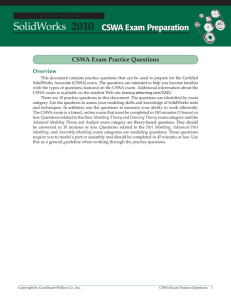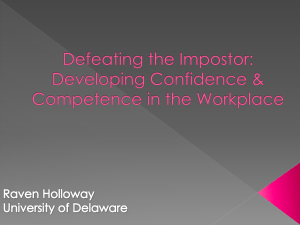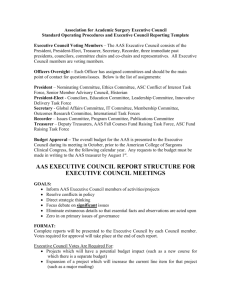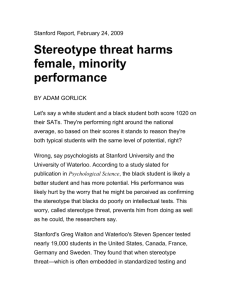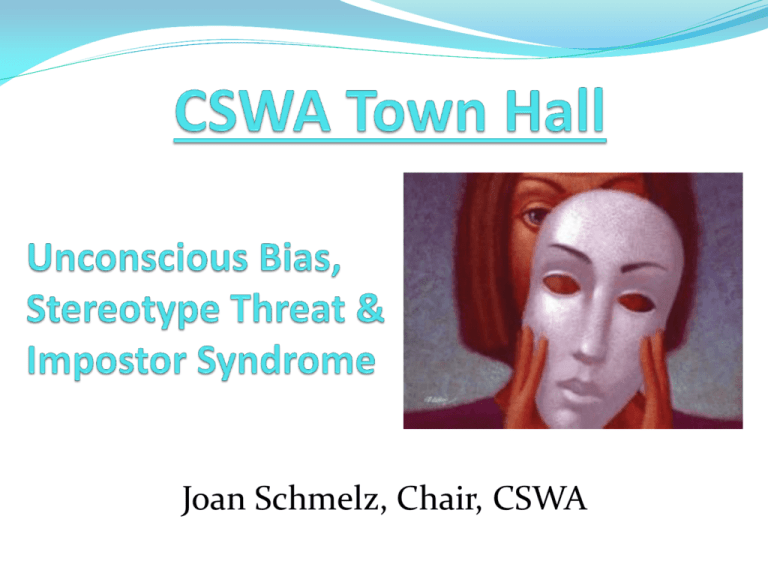
CSWA Town Hall
Joan Schmelz, Chair, CSWA
CSWA
Joan Schmelz
Chair (2009 - 2015)
Univ. of Memphis
Dept. of Physics
Memphis, TN 38152
(901) 678-2419
jschmelz@memphis.edu
Edmund Bertschinger (2010 - 13)
David Charbonneau (2011 - 2014)
Neil Gehrels (2012 - 2015)
Meredith Hughes (2012 - 2015)
Jessica Kirkpatrick (2012 - 2015)
Michele Montgomery (2008 - 14)
Nancy Morrison (2010 - 2013)
Nick Murphy (2012 - 2015)
Joan Schmelz (2004 - 2015)
Caroline Simpson (2007 - 2013)
Laura Trouille (2010 - 2013)
Nicolle Zellner (2012 - 2015)
CSWA
Website: http://www.aas.org/cswa/
STATUS: http://www.aas.org/cswa/STATUS
AASWOMEN: http://www.aas.org/cswa/AASWOMEN
Blog: http://womeninastronomy.blogspot.com/
Facebook
Twitter: follow "AAS CSWA" or @AAS_Women
Women can face a powerful
combination of hidden obstacles
• Unconscious bias: men and women both unconsciously devalue
the contributions of women. This can have a detrimental effect on
grant proposals, job applications, and performance reviews.
• Stereotype threat: the anxiety women face in a situation where
they have the potential to confirm a negative stereotype about
women as a group. This anxiety alone can result in documented
cases of lower scores on standardized math tests.
• Highly competent women may also face impostor syndrome where
they find it impossible to believe in their own competence. They
live with a fear of being discovered.
Why So Few? presents evidence that social and environmental
factors contribute to the underrepresentation of
women and girls in STEM.
Eight research findings in three areas:
• How social and environmental factors
shape girls’ achievements and interests
in math and science
• The climate of college and university
science and engineering departments
• Continuing influence of bias
To download the report: www.aauw.org
Unconscious Bias: Gender
Teams of male and female university
psych profs (search committees)
Karen
Evaluate candidates for an open
position (assist prof of psych)
Application packages for Karen and
Brian are identical except for name
Search committees preferred 2:1 to
hire Brian over Karen
When evaluating a more experienced record (tenure), reservations
expressed 4x more often for Karen.
Brian
Steinpreis, Anders, & Ritzke (1999) Sex Roles, 41, 509.
Unconscious Bias: Science
Evaluate candidates for a lab manager
position (competent, not stellar).
On a scale of 1 to 7 (7 highest)
John
Jennifer
professors gave John a score of 4.0 for
competence and Jennifer 3.3.
John was viewed more favorably as
someone they would hire or mentor.
Average starting salary: Jennifer
$26,508; John $30,328.
The bias had no relation to the
professors’ age, sex, teaching field, or
tenure status.
Moss-Racusin et al. (2012) Proc. National Academy of Sciences.
Stereotype Threat: Example
Students are selected based on their
excellent math SAT scores and divided
randomly into two groups
Both groups are given a math test of GRE
level problems
Group 1: test given under normal “GRE-
type” conditions
Group 2: told specifically that this test was
designed to be gender neutral
Stereotype Threat: Results
Results for Group 1: men and women got the same average
score
Results for Group 2: women did significantly better than
men. Why?
On the SAT test, they got scores equal to the men, but
with stereotype threat
On the GRE test, there was no stereotype threat, so they
performed at their “real” level
Impostor Syndrome: the Article
Status Magazine (Jan ’11)
By Rachel Ivie and Arnell
Ephraim (AIP)
Women and the Impostor
Syndrome in Astronomy
http://www.aas.org/cswa/status/STATUS_jan11_FINAL_s.pdf
Impostor Syndrome: the Post
Women in Astronomy
Blogspot
John Johnson (Caltech)
I remember waking up in a
cold sweat one night in early
2010, about six months after
I joined the faculty at
Caltech.
http://womeninastronomy.blogspot.com/2012/10/guest-post-by-john-johsonimpostor.html
CSWA Resources Page
Information on:
2-body problem
Work-life balance
Sexual harassment
Unconscious bias
http://www.aas.org/cswa/resources.html
Thanks to Nancy Morrison, CSWA Web Manager
Work-Life
Balance
Stereotype
Threat
2-Body
Problem Impostor
Syndrome
S
c
i
e
n
c
e
Unconscious
Bias
Sexual
Harassment
Discrimination


